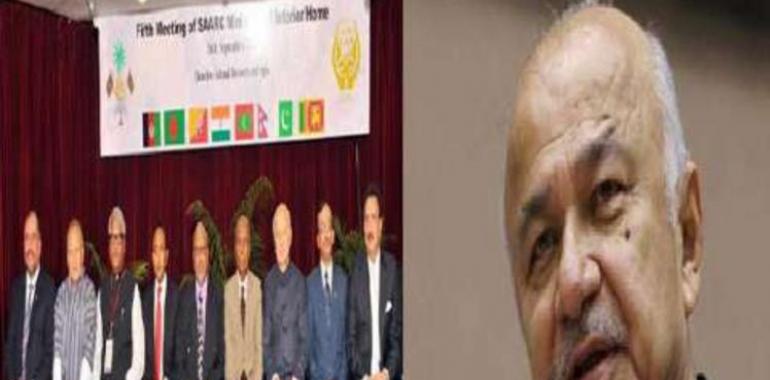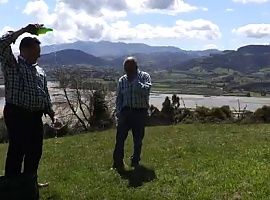New Delhi, Sept 27, IRNA – Describing terrorism as a cancer, India Wednesday asked its neighbors to work together to wipe out the meance rather than be selective in tackling the most significant challenge to peace and security in South Asia.
Home Minister Sushilkumar Shinde said terrorism was the single largest hindrance to socio-economic development in South Asia and its linkages with organised crime has led to the simultaneous growth of trafficking in drugs, arms and exploitation of women and children.
"These are cancers that can only be removed from our region if we act in concert. Therefore, as neighbors and as partners in SAARC, we must work together much more closely and much more substantively.
"We must create an atmosphere of peace and security both within our individual borders, and across our borders," he said addressing the SAARC Home/Interior Ministers conference at Bandos Island in Maldives, pti reported. Shinde said no country can live within islands of security if South Asia is insecure, or if sources of insecurity exist outside the region's borders.
"Each instance of terrorism in our region is a reminder for us to cooperate in concrete action rather than merely in intentions....This is a hard reality that we seem to be forced to re-learn regularly," he said.
The home minister asked SAARC member nations to deploy the best instruments and resources to fight terrorism, share capacities and cooperate meaningfully, joining hands to take effective action against terror cells, extremist ideologies and agencies and organised crime syndicates.
He said in meetings like the SAARC, each nation often reiterates the need to share information on a real-time basis on terrorist groups, organised criminal activity and their supporting networks.
"However, intelligence-sharing is meaningful only if it is acted upon. The incentive to share information is reduced if it is perceived that it is either being disregarded or not utilised properly," he said.
Shinde asked SAARC nations to recognise that terrorism, trafficking in drugs, human beings, arms and currency counterfeiting were a challenge to the entire region and objective of such forces was common -- to weaken established systems. This is why such menaces are inter-linked.
The minister said to tackle these cancers collectively, there are a number of SAARC mechanisms and conventions in place and on paper, these are well-crafted documents providing legal structures for a range of efforts to make South Asia more secure.
"However, it seems clear that we are collectively not proactive enough in implementing these measures...It is a sad reality that physical insecurity remains one of the most serious challenges of our region. Regrettably, despite praiseworthy efforts by our security forces, the lives and safety of our people continue to be threatened by deliberately-planned terrorist outrages," he said.
Earlier, in his inaugural address Maldives Vice President Mohamed Waheed Deen said that SAARC was embarking on highlighting one of the most important issues that face all the nations of the world -- its security.
"Security today, internal and external, is most important, especially in the high seas. Security of each nation is extremely important for their independence and to remain as a sovereign state. Therefore this meeting of Ministers of Interior and Home is very crucial at this moment, when the whole world is in turmoil," he said.
He also drew attention of the delegates to the "serious threats" faced by the Maldives like piracy, drug smuggling, human trafficking and terrorism and hoped that solutions would be found.
Maldives had hosted the 17th SAARC summit in November last year.
The first meeting of Home and Interior Ministers of SAARC nations was held in Dhaka in 2006 after it was decided at the 13th SAARC summit that home ministers would meet annually to strengthen cooperation against terrorism.
The grouping comprises India, Pakistan, Nepal, Bangladesh, Bhutan, Sri Lanka, Maldives and Afghanistan.




















